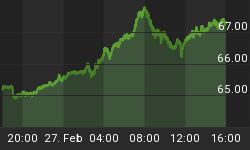This week, during his testimony before the hostile Senate Banking Committee, Treasury Secretary Henry Paulson sought to justify the Bush administration's China policy. Predictably, the unmoved senators responded with threats of tariffs should China continue to restrain the yuan, and warned of the negative consequences of restricted access to American consumers. Needless to say, China need not lose any sleep over this bombastic posturing.
For much of the 19th and early 20th centuries, U.S. tariffs on imported goods were common, and in fact were the Federal government's primary source of revenue prior to the imposition of the income tax in 1913. Tariffs were the central political issue of the time, pitting the upper and lower classes against one another. At the time, because tariffs had the effect of making consumer goods more expensive, working and middle classes largely opposed them. Industrialists argued that tariffs were needed to protect nascent American industries from more mature foreign competitors. (Ironically, today's battle lines have shifted completely, with business opposing tariffs and workers supporting them.)
However, protective tariffs against Chinese goods today would have little benefit as there are so few industries left to protect. If tariffs caused the price of Chinese goods to rise substantially, there are few American made substitutes available to fill the low cost void. The real winners would be other foreign manufacturers that would gain competitive advantages over China. Therefore, politicians will derive scant benefit from the support of tariffs.
The only loud cries for tariffs are coming from organized labor, in theory to gain protection from lower paid Chinese workers. However, significantly higher prices at Wal-Mart will be experienced viscerally by lower and middle income Americans (ironically including most rank and file union members), who will then be inclined to vote with their pocket books. Therefore, the political risks in supporting tariffs guarantee that that they will not be imposed.
In reality, rather than protecting American jobs, tariffs on Chinese goods would help destroy them even faster. Significant increases in the price of Chinese goods would increase the cost of consumption, causing Americans to either consume less or go even deeper into debt to avoid doing so. While in the long run less consumption would be a positive development, tariffs are not the best way to bring it about. In the short run however, the result would be higher consumer prices, increased unemployment and recession.
The domestic risks to the imposition of tariffs pale in comparison to the risks of Chinese retaliation. To inflict maximum damage, the Chinese need not consider similar tariffs on our goods, but could instead refrain from currency intervention sending the dollar into a tailspin and interest rates and consumer prices soaring. Tariffs may be the final straw in helping the Chinese to discard their current policy of vendor-financing American consumption. They might actually see the senselessness in exporting goods on credit to over-leveraged, non-productive customers. If they do, they will drop it like a bad habit.
The bottom line is that America threatening China with tariffs is the equivalent of a bank robber turning his pistol on himself and threatening to pull the trigger. Since there is little likelihood of America committing economic suicide, there is no reason to waste any time worrying about what might happen if we did.
For a more in depth analysis of the precarious state of the American economy and its dependence on China, order a copy of my new book "Crash Proof: How to Profit from the Coming Economic Collapse" by clicking here.
In addition make sure to protect your wealth and preserve your purchasing power before Chinese wake up. Discover the best way to buy gold at www.goldyoucanfold.com, download my free research report on the powerful case for investing in foreign equities available at www.researchreportone.com, and subscribe to my free, on-line investment newsletter at http://www.europac.net/newsletter/newsletter.asp.















